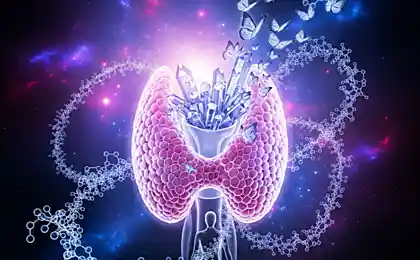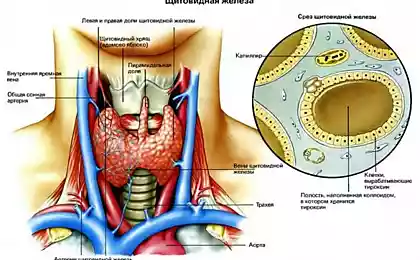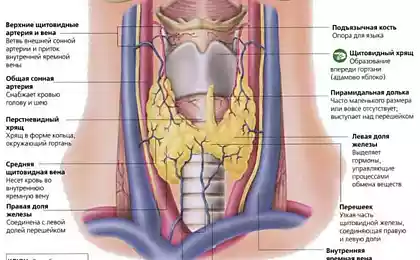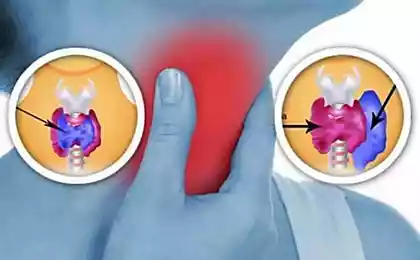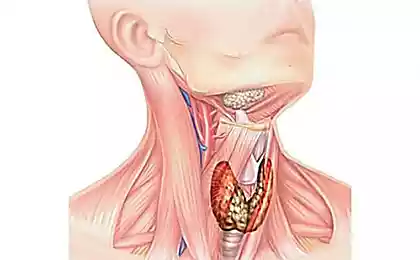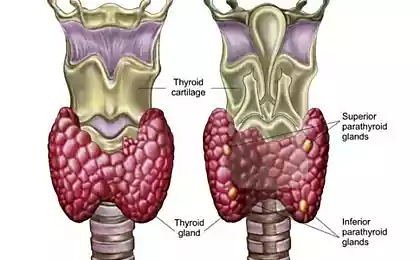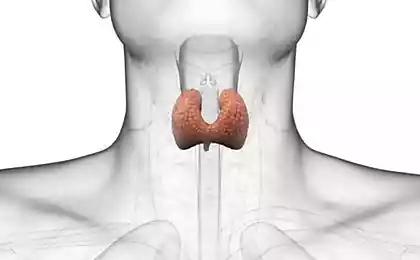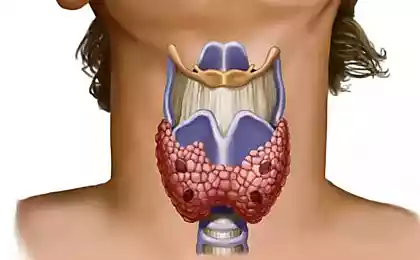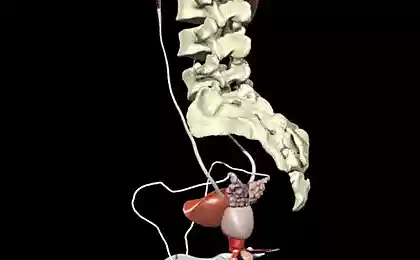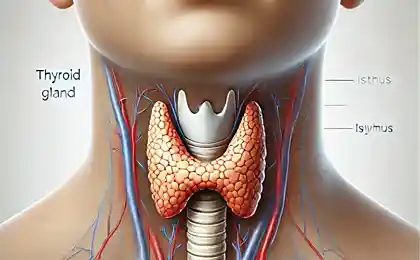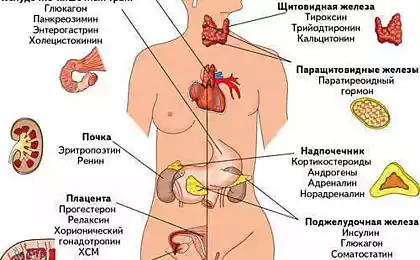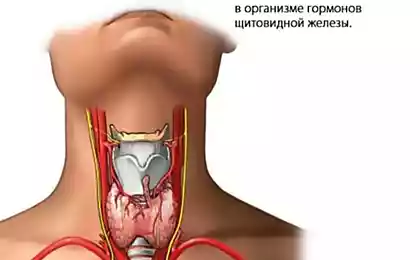533
How to detect thyroid disease?
Thyroid gland is responsible for several important functions in our body, for example metabolism. When the thyroid gland is not OK, it affects many other organs, which in turn leads to health problems.
According to world statistics, mainly thyroid diseases affect women; at risk are women over forty and women during pregnancy or after it.
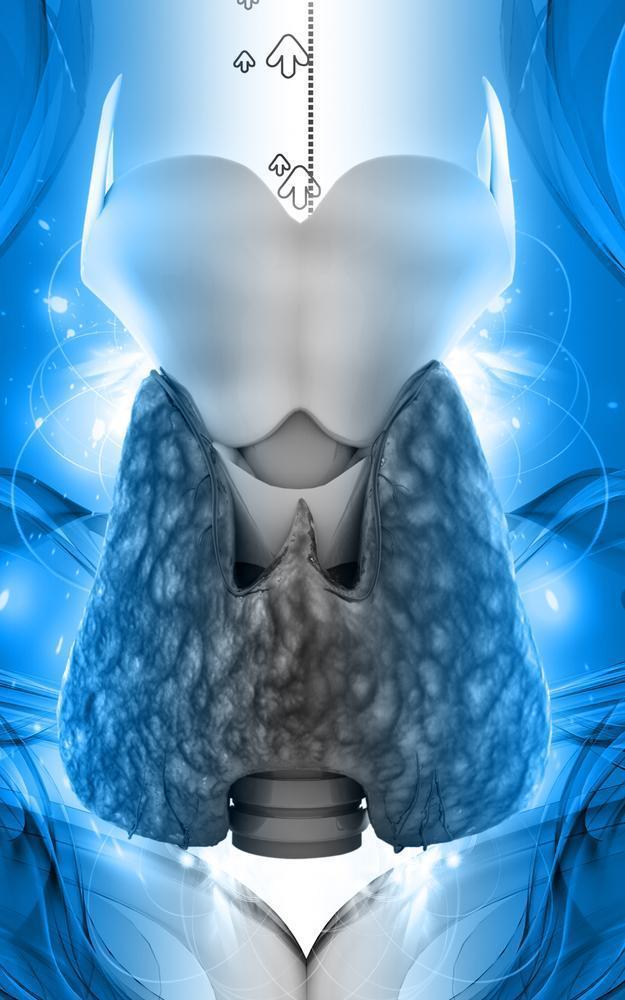
The main function of the thyroid gland is to develop three hormones: thyroxine (T4), triiodothyronine (T3) and thyrocalcitonin. Hormones T4 and T3 are associated with metabolism and influence virtually every cell in our body, which, in turn, participate in the processes of life.
The thyroid gland is very important, and that is to take care of her health and to pay attention to any symptoms that may talk about the instability of the work, as in the future it may develop into a serious disease.
Despite the fact that certain symptoms are a clear indication that the thyroid is not OK, in General, to diagnose a disease at an early stage is quite difficult. It is therefore an important clinical tests: it is only with their help, you can determine whether has any disease of the thyroid gland.
How to diagnose thyroid disease?
What symptoms should pay attention to?As we have said, to diagnose thyroid disease is not easy, especially at an early stage. Often such diseases are accompanied by very common symptoms, and because of this, doctors may incorrectly determine the cause of their appearance and make the thyroid disease for some other — but equally serious — illness: stress, fatigue, depression or dementia.
For this reason, it is very important to have relevant information and to keep in mind that if there are any common symptoms you must consult a doctor and ask him to conduct tests that will help well determine what kind of disease it is.
Of course, some symptoms can be associated with other diseases, however, if they do not pass and have a negative impact on quality of life, you should consult with a specialist.
Any disease affecting the thyroid gland, causes a disturbance of metabolism, which causes the malfunctioning of the organs of the body and leads to serious health problems.
Diseases of the thyroid most often affects women; diseases can cause menstrual disorders and even cause infertility. To avoid such consequences, you need to know what the symptoms of such diseases.
Hypothyroidism, not exposed to any treatment, can cause extra weight, to provoke a rise in cholesterol and increase the risk of problems with cardiovascular system. In addition, it can cause neurosis, depression, a bad mood or apathy.
Here are a few of the symptoms, the appearance of which is to take action — they characterize hyperthyroidism: puffy eyes and face, pale, expressionless facial features, sweating, hair loss, skin changes, tachycardia, and sleep problems.
It is obvious that all of the above symptoms impair quality of life and is not allowed to follow its normal habits. Very often the patient does not understand what was happening to him and why doctors can be difficult to diagnose disease of the thyroid gland. For this reason, it is important not to forget about the symptoms that indicate possible problems.
The risk of developing the disease increases with age, and because all those over 40 should undergo a special examination every five years. Also pregnant women should be especially careful and undergo regular examination of the thyroid gland, to avoid complications during or after pregnancy for mom and baby. published
P. S. And remember, only by changing their consumption — together we change the world! © Join us at Facebook , Vkontakte, Odnoklassniki
Source: steptohealth.ru/
According to world statistics, mainly thyroid diseases affect women; at risk are women over forty and women during pregnancy or after it.

The main function of the thyroid gland is to develop three hormones: thyroxine (T4), triiodothyronine (T3) and thyrocalcitonin. Hormones T4 and T3 are associated with metabolism and influence virtually every cell in our body, which, in turn, participate in the processes of life.
The thyroid gland is very important, and that is to take care of her health and to pay attention to any symptoms that may talk about the instability of the work, as in the future it may develop into a serious disease.
Despite the fact that certain symptoms are a clear indication that the thyroid is not OK, in General, to diagnose a disease at an early stage is quite difficult. It is therefore an important clinical tests: it is only with their help, you can determine whether has any disease of the thyroid gland.
How to diagnose thyroid disease?
- You first need to check the patient's medical history, and medical history of the family.
- Then carry out the examination of the patient, including palpation of the neck for proper diagnosis.
- The tests are the most effective way to diagnose, as they can be used to determine the level of the triune hormones and thyrotropin (TSH).
What symptoms should pay attention to?As we have said, to diagnose thyroid disease is not easy, especially at an early stage. Often such diseases are accompanied by very common symptoms, and because of this, doctors may incorrectly determine the cause of their appearance and make the thyroid disease for some other — but equally serious — illness: stress, fatigue, depression or dementia.
For this reason, it is very important to have relevant information and to keep in mind that if there are any common symptoms you must consult a doctor and ask him to conduct tests that will help well determine what kind of disease it is.
Of course, some symptoms can be associated with other diseases, however, if they do not pass and have a negative impact on quality of life, you should consult with a specialist.
Any disease affecting the thyroid gland, causes a disturbance of metabolism, which causes the malfunctioning of the organs of the body and leads to serious health problems.
Diseases of the thyroid most often affects women; diseases can cause menstrual disorders and even cause infertility. To avoid such consequences, you need to know what the symptoms of such diseases.
Hypothyroidism, not exposed to any treatment, can cause extra weight, to provoke a rise in cholesterol and increase the risk of problems with cardiovascular system. In addition, it can cause neurosis, depression, a bad mood or apathy.
Here are a few of the symptoms, the appearance of which is to take action — they characterize hyperthyroidism: puffy eyes and face, pale, expressionless facial features, sweating, hair loss, skin changes, tachycardia, and sleep problems.
It is obvious that all of the above symptoms impair quality of life and is not allowed to follow its normal habits. Very often the patient does not understand what was happening to him and why doctors can be difficult to diagnose disease of the thyroid gland. For this reason, it is important not to forget about the symptoms that indicate possible problems.
The risk of developing the disease increases with age, and because all those over 40 should undergo a special examination every five years. Also pregnant women should be especially careful and undergo regular examination of the thyroid gland, to avoid complications during or after pregnancy for mom and baby. published
P. S. And remember, only by changing their consumption — together we change the world! © Join us at Facebook , Vkontakte, Odnoklassniki
Source: steptohealth.ru/
Attentive parenting: 12 tips from Jon Kabat-Sinn
3 mistakes of winter driving, you need to remember!
